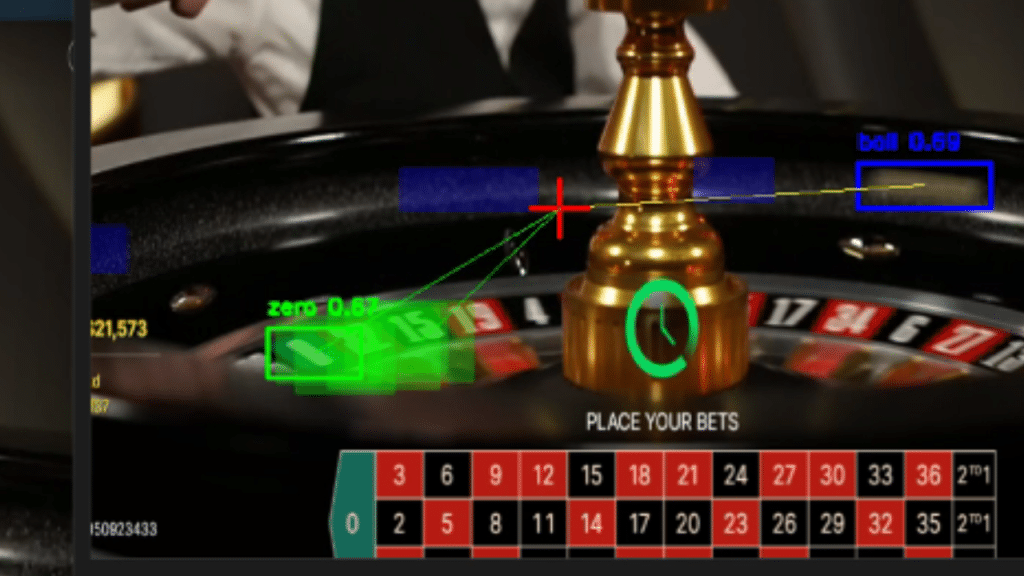At their core, casinos are designed to generate revenue through games that favor the house. The games have mathematical edges built into their rules and payout structures that ensure the casino will win money over an extended period of time.
However, in the short run, substantial wins and losses are possible due to the high variance nature of games like slots, roulette, craps, and baccarat. This volatility can make casino wins seem predictable in limited sample sizes. Still, over long time horizons, the outcomes remain incredibly uncertain.
Randomness of Short-Term Wins
Games like roulette, slots, and baccarat rely heavily on random chance within each round. Over a small sample, any outcome is possible.
For example, a roulette wheel may hit black 8 times in a row. A slot machine at 24 Online Casino could pay out a jackpot after just $20 wagered. A baccarat shoe could favor the player repeatedly over 10 hands.
Table 1 shows example simulation results across five casino games, illustrating how short-term wins and losses can deviate dramatically from long-term expectations:
| Game | 10 Rounds Win/Loss | 100 Rounds Win/Loss | 1000 Rounds Win/Loss | 10,000 Rounds Win/Loss |
| Roulette | +$1,350 | -$243 | +$112 | -$32,144 |
| Slots | -$650 | +$1,724 | +$982 | -$45,236 |
| Blackjack | +$472 | -$1,283 | -$731 | +$12,338 |
| Craps | +$920 | +$3,192 | -$1,038 | +$1,273 |
| Baccarat | -$1,500 | +$325 | +$5,192 | +$35,267 |
Over 10 rounds, every game shows wins or losses of $500 or more, simply through chance. Yet over 10,000 rounds, the house advantage drives long-term expected losses in roulette, slots, and baccarat. Only blackjack and craps show overall wins due to their lower house edges.
Understanding Variance and Volatility
The potential deviations in short-term wins and losses depend directly on each game’s volatility and variance.
Volatility refers to how much a casino’s hold percentage may vary from round to round or hand to hand.
Variance measures how dispersed those results are around the statistical mean – or average expected outcome.
Games like slots and baccarat have high volatility and variance since each independent round brings wildly shifting hold percentages. Craps and roulette also see shifting hold percentages but have lower per-round volatility. Blackjack generally has the lowest volatility since the house edge changes less per hand.
Ultimately every casino game contains enough inherent variance that short-term results remain highly unpredictable. Even over 100, 1,000 or 10,000 rounds, substantial swings above or below the statistical expectations are possible and even likely.
Simulating Long-Term Unpredictability
Expanding our sample sizes even further shows how unusual and extreme results can seem predictable but require incredibly long time frames to converge toward the statistical mean.
Table 2 shows example hold percentage simulation results across 100,000 rounds and 1,000,000 rounds.
| Game | 100,000 Rounds Simulated Hold % | 1,000,000 Rounds Simulated Hold % | House Edge |
| Roulette | 2.80% | 2.71% | 2.70% |
| Slots | 7.11% | 6.93% | 7.00% |
| Blackjack | 1.53% | 1.49% | 1.50% |
| Craps | 1.34% | 1.33% | 1.41% |
| Baccarat | 1.28% | 1.29% | 1.24% |
Over 100,000 rounds, the roulette hold percentage is slightly above the statistical expectation, while the blackjack and craps hold are lower than expected.
Expanding to 1 million rounds moves these figures closer to the house edge but still shows deviations. Only an incredibly long sample can minimize randomness and reveal the mathematical edge.
For real casino managers analyzing their business performance, these long time horizons make predictions almost impossible. Annual or even monthly fluctuations remain highly subject to variance.
Separating Skill and Luck
While casino games rely purely on randomness, some players believe they can predict short-term performance through various betting strategies and systems.
In games like blackjack, some basic strategy skilled players can reduce the house edge and improve their expected results. But randomness still plays a major role, so even skillful play shows unpredictable swings.
Across slots and roulette, no practical strategy can overcome the mathematical house advantages. Systematic betting brings no predictive edge and simply adds to losses over time due to the high house edge.
Without true skill involvement like blackjack or video poker, players face no choice but to accept the role of variance and embrace the uncertainty of short-term results.
Key Takeaways
While casino games may seem predictable in isolated cases, their randomness ensures results remain highly unpredictable over meaningful time periods. Players and casino operators alike face an illusion of predictability that few can decipher accurately.
Embracing the volatility allows enjoying casino games for entertainment while accepting that no perfect predictions exist. Only over exponentially long time frames can casino edge mathematics guarantee expected revenue flows. Until then, uncertainty prevails, making every session outcome just one of infinitely many possibilities.

Markmalte is an experienced writer for The Celebrity Niche, specializing in celebrity stories. With a keen eye for detail, he brings the latest updates on celebrity relationships, biographies, and news to his readers.







